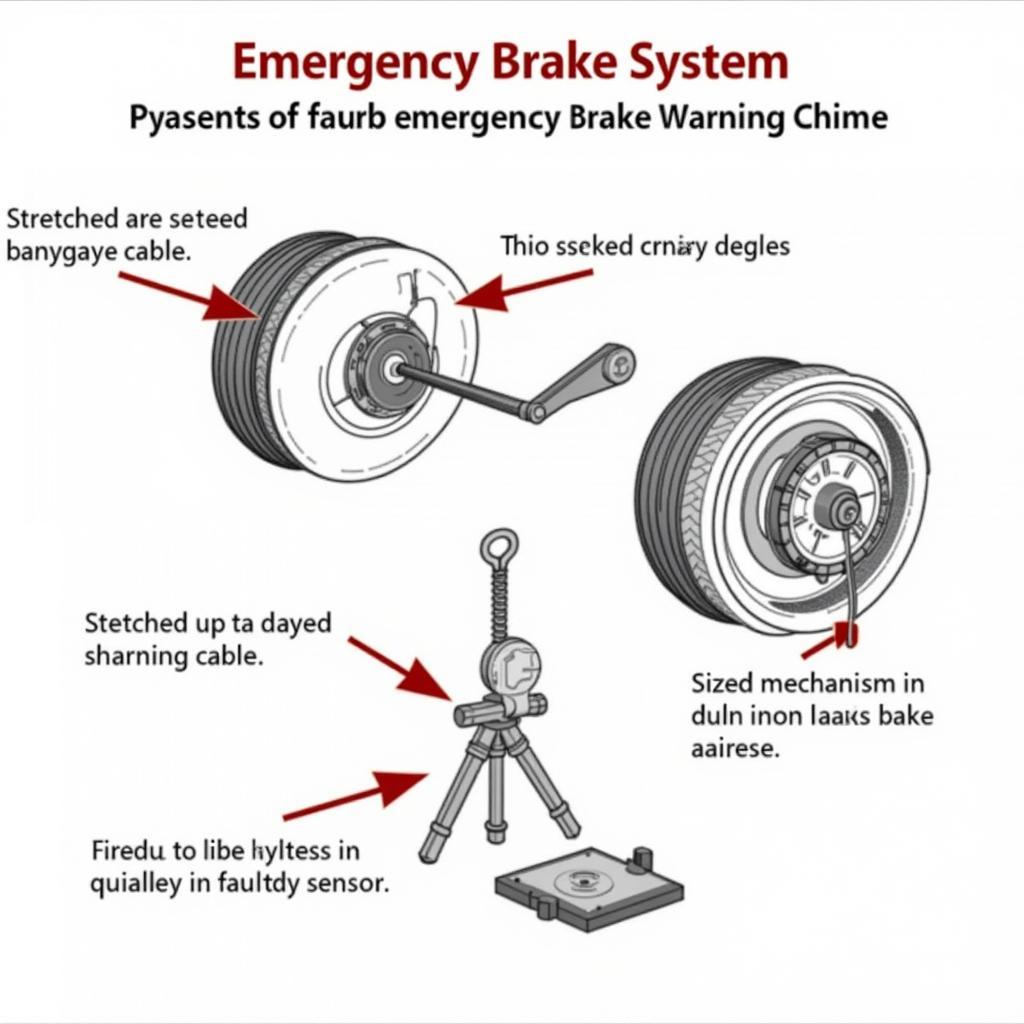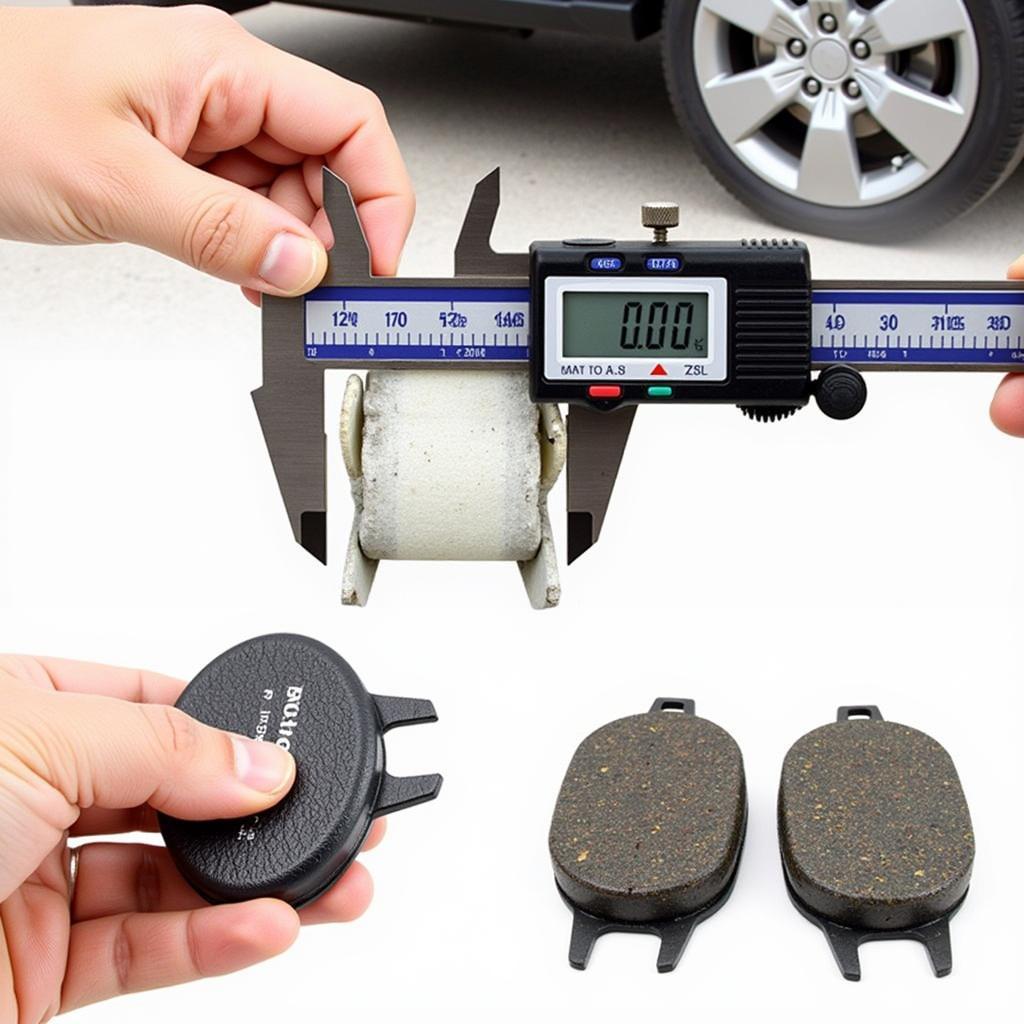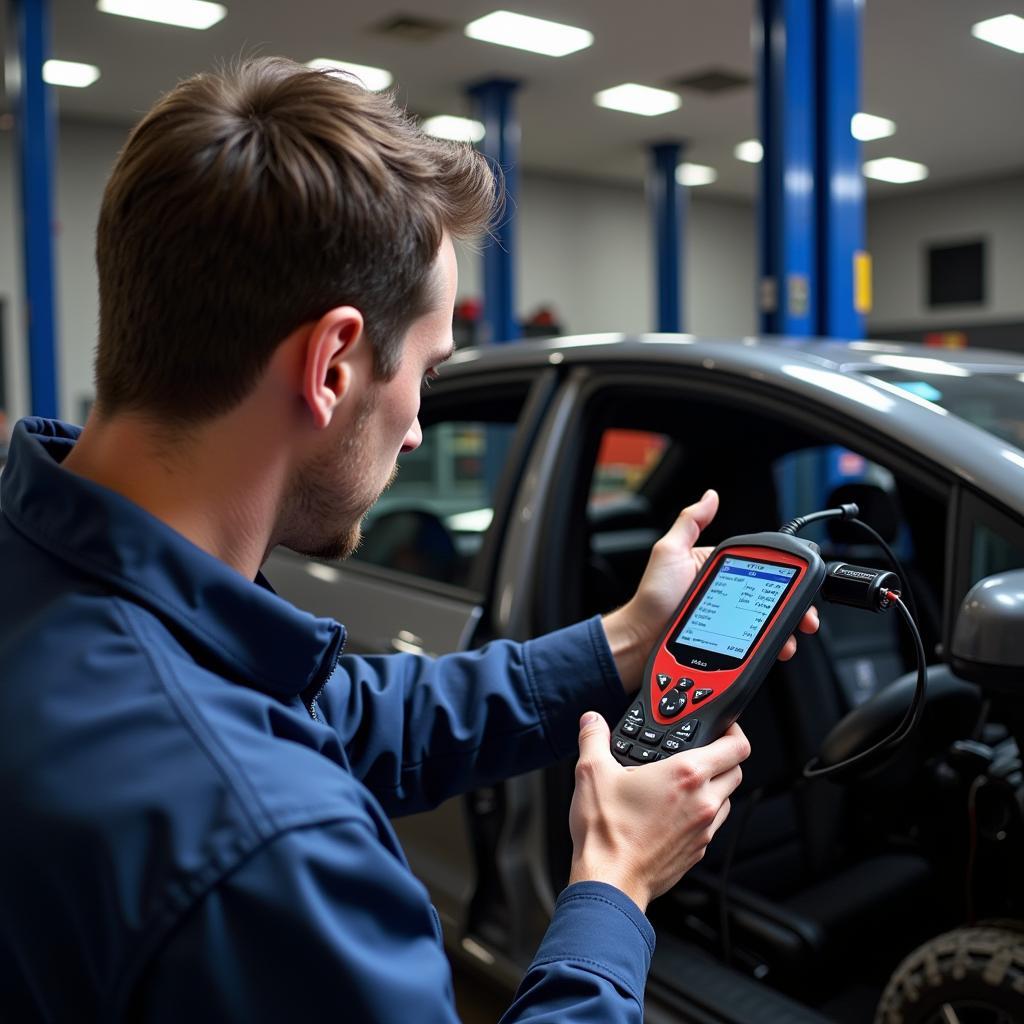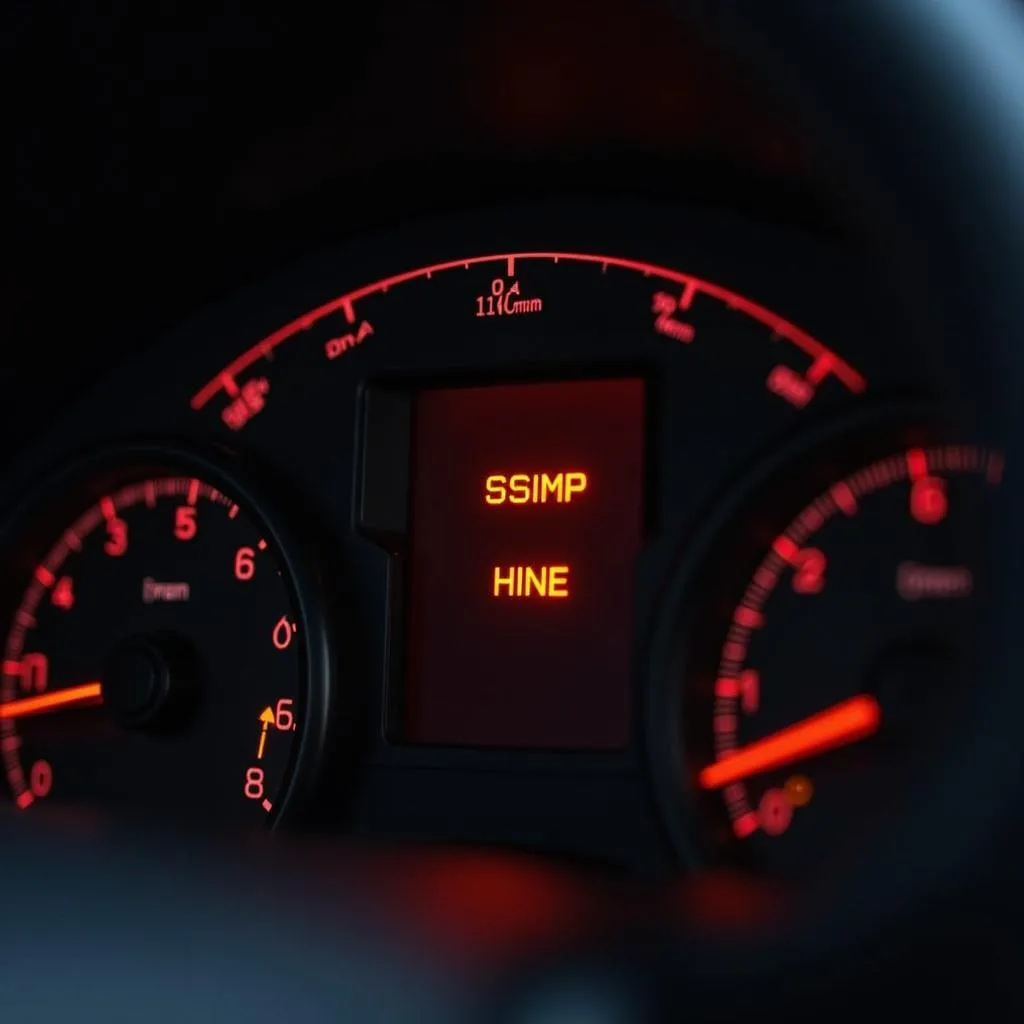That annoying emergency brake warning chime – we’ve all heard it. It’s a safety feature designed to prevent you from driving with the parking brake engaged, but sometimes it can be a sign of a more serious issue. This article explores the common causes of an emergency brake warning chime and offers practical solutions, from simple DIY fixes to more advanced diagnostic procedures.
The persistent chime can be triggered by a variety of factors, from a simple oversight to a malfunctioning sensor. Understanding the underlying cause is crucial to resolving the issue effectively. After reading this guide, you’ll be equipped to diagnose and potentially fix the problem yourself, saving you time and money. This article also provides insights into when professional help is necessary and what to expect during a diagnostic service. You can learn more about other brake warning issues, such as the ones found on a Mazda, by reading our Mazda brake warning guide.
Common Causes of the Emergency Brake Warning Chime
Low Brake Fluid
One of the most common culprits behind the incessant chime is low brake fluid. This is a serious issue that shouldn’t be ignored, as it could indicate a leak in your brake system. Check your brake fluid reservoir and top it off if necessary. If the fluid level continues to drop, seek professional help immediately.
Faulty Brake Light Switch
The brake light switch, often located near the brake pedal, is responsible for activating your brake lights when you press the pedal. A malfunctioning switch can sometimes trigger the emergency brake warning chime. Testing the switch with a multimeter can help determine if it’s the source of the problem.
Worn Brake Pads
Worn brake pads can also activate the warning chime. As your brake pads wear down, the brake fluid level in the master cylinder decreases. This can trigger the low brake fluid warning, which in turn activates the chime. It’s essential to regularly inspect your brake pads and replace them when necessary.
 Emergency Brake System Diagram
Emergency Brake System Diagram
Stuck Parking Brake Cable
Sometimes, the parking brake cable can become stuck or corroded, preventing the parking brake from fully disengaging. This can cause the warning chime to persist even when the lever is released. Lubricating the cable or replacing it altogether might be necessary. For example, some Passat owners have experienced a persistent parking brake warning light. You can read more about that specific issue on our parking brake warning light Passat article.
Diagnosing the Emergency Brake Warning Chime
Visual Inspection
Start by visually inspecting the parking brake lever and cable for any signs of damage or obstruction. Check the brake fluid reservoir and ensure the fluid level is within the recommended range.
Testing the Brake Light Switch
Use a multimeter to test the brake light switch for continuity. This will determine if the switch is functioning correctly. If the switch is faulty, replacing it is a relatively simple procedure.
Checking Brake Pad Thickness
Inspect the brake pads for wear and tear. Measure the thickness of the pads and compare it to the manufacturer’s specifications. Replace the pads if they are worn beyond the recommended limit.
 Brake Pad Thickness Measurement
Brake Pad Thickness Measurement
Inspecting the Parking Brake Cable
Check the parking brake cable for any signs of damage, corrosion, or kinks. If the cable is stuck, try lubricating it with a suitable lubricant. If the cable is damaged, it will need to be replaced. You can also read more about brake fluid warnings, like the one for the Honda Civic, in our article on Honda Civic brake fluid warning light.
When to Seek Professional Help
If you’ve tried the basic troubleshooting steps and the emergency brake warning chime persists, it’s time to seek professional help. A qualified technician can perform a more thorough diagnosis using specialized tools and equipment. They can identify the root cause of the problem and recommend the appropriate repairs. You might also be interested in reading about the service brake assist warning, which can be related.
Preventing Future Issues
Regular maintenance is key to preventing future problems with your emergency brake system. Regularly check your brake fluid level, inspect your brake pads, and lubricate the parking brake cable as needed. These simple steps can help keep your brakes in good working order and prevent the annoying chime from returning.
Conclusion
The emergency brake warning chime is a crucial safety feature that should never be ignored. Understanding the common causes and solutions can save you time and money. While some issues can be resolved with simple DIY fixes, more complex problems require professional attention. Remember, regular maintenance is essential to keeping your brakes in optimal condition and preventing future issues. Addressing the issue promptly ensures your safety and prevents further damage to your vehicle. Check out our article on the best seat belt warning to learn more about other important safety features.
 Mechanic Inspecting Brake System
Mechanic Inspecting Brake System
FAQ
-
What does the emergency brake warning chime mean? The chime alerts you that the parking brake is engaged or there’s a potential issue with the brake system.
-
Can I drive with the emergency brake warning chime on? It’s not recommended. Driving with the parking brake engaged can cause damage to your brakes. If the chime persists even with the brake released, there could be a more serious problem.
-
How do I reset the emergency brake warning chime? Addressing the underlying issue, such as low brake fluid or a faulty sensor, will typically resolve the chime.
-
Is it expensive to fix the emergency brake warning chime? The cost depends on the underlying cause. Simple fixes like topping off brake fluid can be inexpensive, while more complex repairs can be more costly.
-
How can I prevent the emergency brake warning chime from coming on? Regular brake system maintenance, including checking fluid levels and inspecting brake pads, can help prevent future issues.
-
What should I do if the chime persists after trying basic troubleshooting? Seek professional help from a qualified automotive technician.
-
Can a faulty brake light switch trigger the emergency brake warning chime? Yes, in some cases, a malfunctioning brake light switch can activate the chime.

